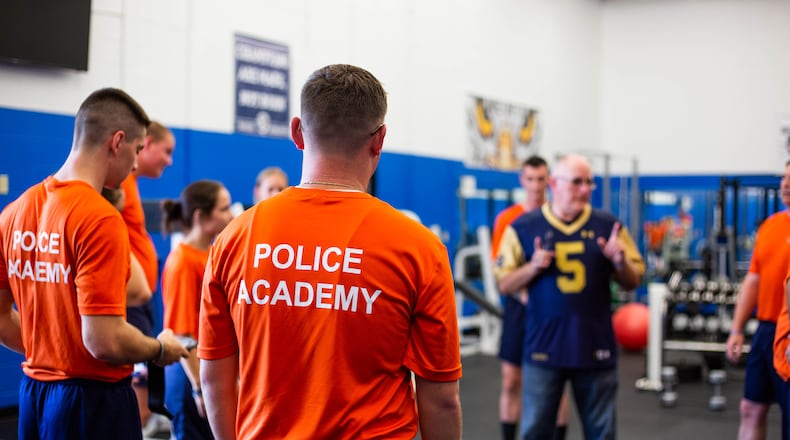“Our regional training program offers curriculum to current law enforcement officers who wish to pursue opportunities to instruct other officers within their agencies and/or police academies in their communities,” said Karen Benton, interim assistant dean of Health, Human and Public services. “The participants are individuals who are seeking certifications in specific law enforcement areas of concentration.”
The center offers 14 trainings including building search instructor, domestic violence, field training officer, first line supervisor, impact weapons instructor, interacting with special needs populations, instructional skills, legal update, physical fitness specialist instructor, responding to mental health crisis, responding to sexual assault, single officer response to active threat, stops and approaches instructor, and use of force.
Over the last year, OPOTA trainings held at the college included two 2-week instructor courses, two 1-week firearm instructor courses, two traffic stop training courses, two physical trainer instructor courses and a pepper spray instructor course.
About 220 police officers from across Ohio have attended classes at Clark State. Only active-duty law enforcement officers, such as state troopers, parole officers, bailiffs and federal officers, private security officers and OPOTA-qualified instructors can take the training.
“Society is constantly evolving. LEOs (law enforcement officers) must grow to meet the needs of society. That is our function. We have classes for officers to continue to train and learn new skills. These skills protect the community as well as LEOs,” Benton said.
Paul Weber, commander of the Basic Peace Officer Training Academy, said students were “very satisfied” with the courses they attended.
“They expressed that the instructors had a wealth of knowledge with the topics taught, and they created a relaxed atmosphere that allowed for a better learning environment,” he said.
Clark State was one of five regional training centers selected statewide in 2022. This is the second time the college has become a regional training provider, with the first from 2022-23 and now from 2023-25.
The OPOTA Advanced Training Course will be offered by the Regional Training Provider for students to enroll into after successfully completing Basic Training and receiving a certification of completion, or if the student is approved to enroll. After successfully completing the advanced course, a student will receive an OPOTA certificate, and a record of the training will be on the student’s official OPOTA transcript.
“We appreciate that we have been entrusted to provide quality education to officers who wish to enhance their skills and knowledge and/or wish to have this serve as a foundation to instruct at police academies,” Benton said.
About the Author

